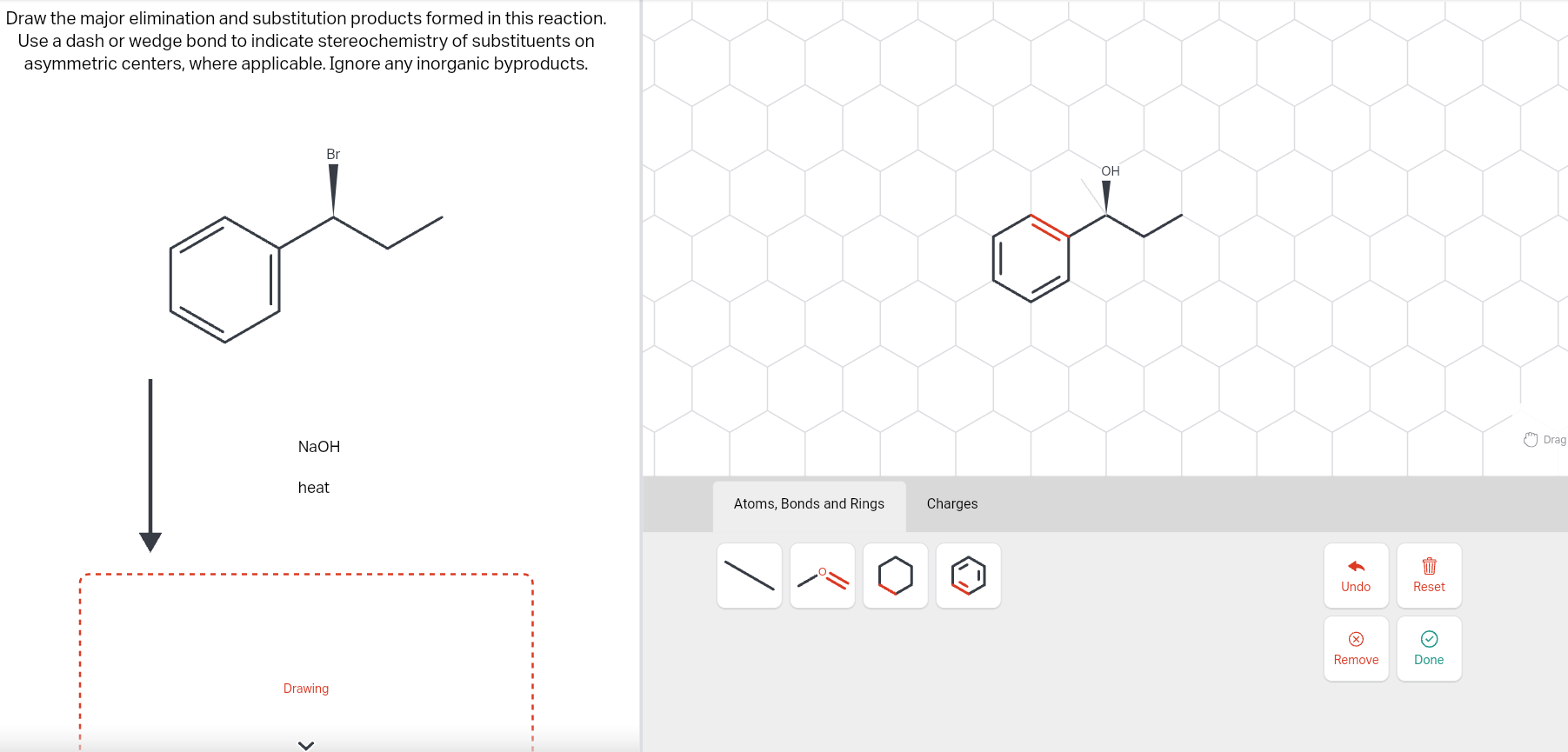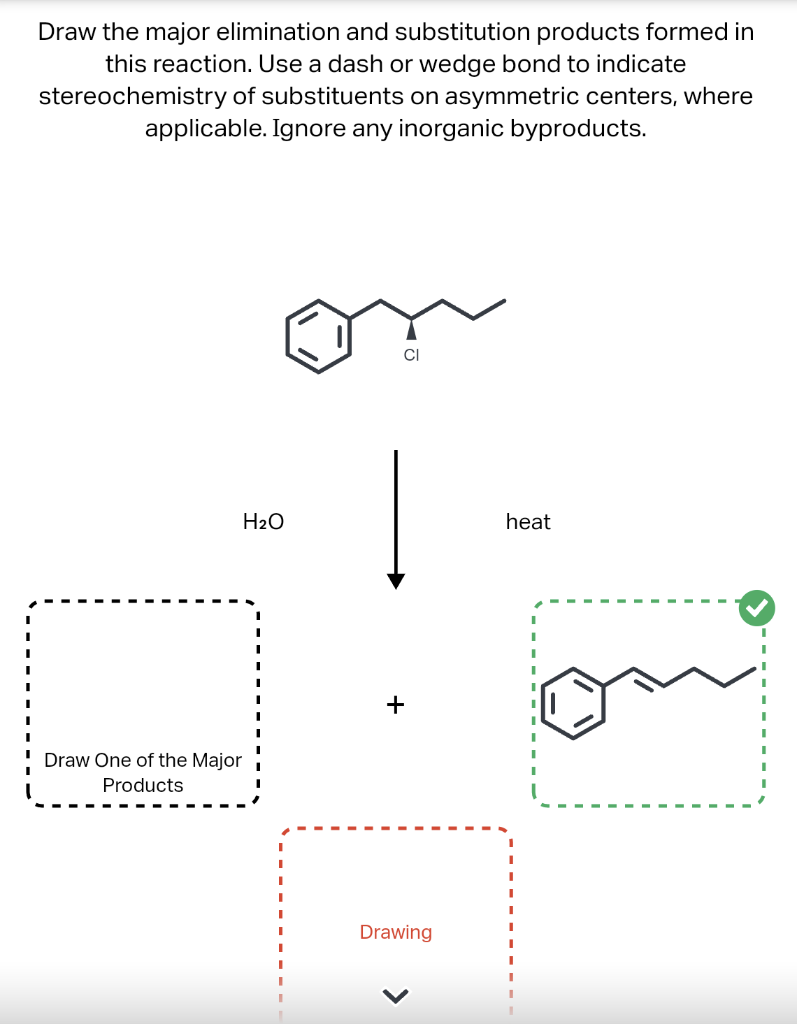Draw The Major Elimination Product Formed In The Reaction, Draw all elimination products that could be formed in an e1.
Draw The Major Elimination Product Formed In The Reaction - Web so the reaction rate depends on both the substrate (rx) and the base involved. Ignore any inorganic byproducts.select to draw e1 product + select to edit e1 product version: Web draw the major elimination product formed in the following reaction. Web draw the major elimination and substitution products formed in this reaction. We can further narrow down the reaction mechanism by the type of substrate. Draw the major elimination products of this e1 reaction. Web a conjugated decarboxylation /e1 elimination reaction (ec 4.2.1.51) occurs in the phenylalanine biosynthesis pathway. Use a dash or wedge bond to indicate the stereochemistry of substituents on asymmetric. Web draw the major elimination product formed in the following reaction. We will learn about the reaction mechanisms, and how. Make sure you can see the key pattern in these examples. We will learn about the reaction mechanisms, and how. There are 3 steps to solve this one. Ch a 3 o a − k a + and dmso. Draw the major elimination product. 100% (6 ratings) share share. Web draw the major elimination product formed in the following reaction. Web identify the given molecule as a tertiary alcohol with a good leaving group (bromine) and a strong base (ch3ok) in a polar aprotic solvent (dmso). Ch a 3 o a − k a + and dmso. Web using a strong nucleophile/base we have. 312 views 3 years ago. Draw all elimination products that could be formed in an e1. Web draw the major elimination product formed in the following reaction. There are 3 steps to solve this one. Ignore any inorganic byproducts.select to draw e1 product + select to edit e1 product version: Web identify the given molecule as a tertiary alcohol with a good leaving group (bromine) and a strong base (ch3ok) in a polar aprotic solvent (dmso). Ignore any inorganic byproducts.select to draw e1 product + select to edit e1 product version: We will learn about the reaction mechanisms, and how. Web to find the products in a specific case, locate. Ignore any inorganic byproducts.select to draw e1 product + select to edit e1 product version: Web using a strong nucleophile/base we have the possibility for either an e2 or sn2 reaction. There are 3 steps to solve this one. In the elimination reaction, the major product formed is the most stable alkene. Web the reaction in the question is of. Web a conjugated decarboxylation /e1 elimination reaction (ec 4.2.1.51) occurs in the phenylalanine biosynthesis pathway. Web sn1, sn2, e1, and e2 reactions form the basis for understanding why certain products are more likely to form than others. Web draw the major product of this elimination. Web draw the major elimination product for the reaction: Web identify the given molecule as. Web draw the product (s) if the molecule below reacts via e1 mechanism and specify the major product. Web whether an e alkene or a z alkene product is favored depends on how large the base is in the e2 reaction. Draw the major elimination products of this e1 reaction. We will learn about the reaction mechanisms, and how. Ignore. Web the reaction in the question is of alkyl halide reacting with a strong base i.e. We can further narrow down the reaction mechanism by the type of substrate. Web draw the product (s) if the molecule below reacts via e1 mechanism and specify the major product. Web whether an e alkene or a z alkene product is favored depends. Draw the major elimination product. Draw all elimination products that could be formed in an e1. Ignore any inorganic byproducts.select to draw e1 product + select to edit e1 product version: Web whether an e alkene or a z alkene product is favored depends on how large the base is in the e2 reaction. Web so the reaction rate depends. Web identify the given molecule as a tertiary alcohol with a good leaving group (bromine) and a strong base (ch3ok) in a polar aprotic solvent (dmso). Web draw the major elimination and substitution products formed in this reaction. Draw the major elimination product. There are 3 steps to solve this one. 100% (6 ratings) share share. Ignore any inorganic byproducts.select to draw e1 product + select to edit e1 product version: Make sure you can see the key pattern in these examples. Web a conjugated decarboxylation /e1 elimination reaction (ec 4.2.1.51) occurs in the phenylalanine biosynthesis pathway. 100% (6 ratings) share share. Web your solution’s ready to go! In the elimination reaction, the major product formed is the most stable alkene. Draw all elimination products that could be formed in an e1. Web so the reaction rate depends on both the substrate (rx) and the base involved. Web draw the major elimination and substitution products formed in this reaction. Web whether an e alkene or a z alkene product is favored depends on how large the base is in the e2 reaction. Web draw the major product of this elimination. Predict the product, and draw a mechanism. Web the reaction in the question is of alkyl halide reacting with a strong base i.e. Web identify the given molecule as a tertiary alcohol with a good leaving group (bromine) and a strong base (ch3ok) in a polar aprotic solvent (dmso). There are 3 steps to solve this one. Use a dash or wedge bond to indicate the stereochemistry of substituents on asymmetric.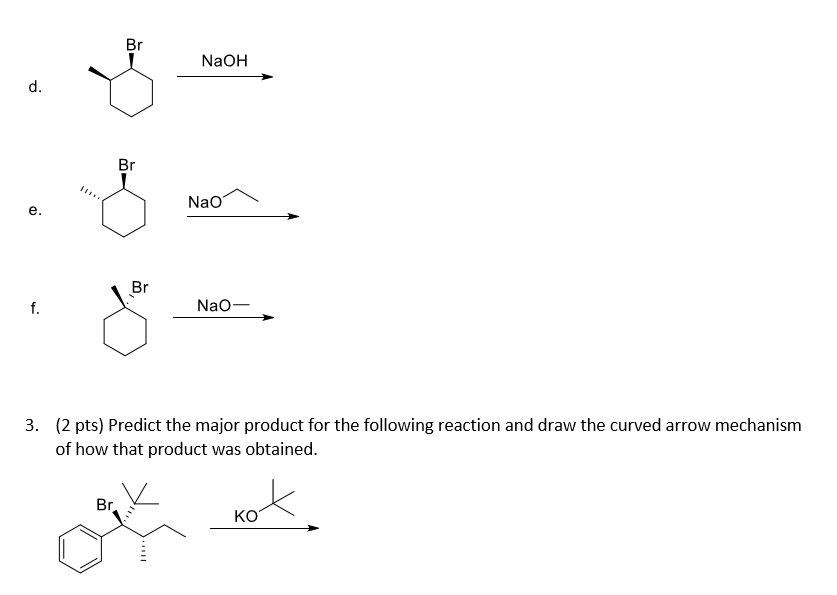
draw the major elimination product formed in the reaction

Draw the major elimination product formed in the following reaction
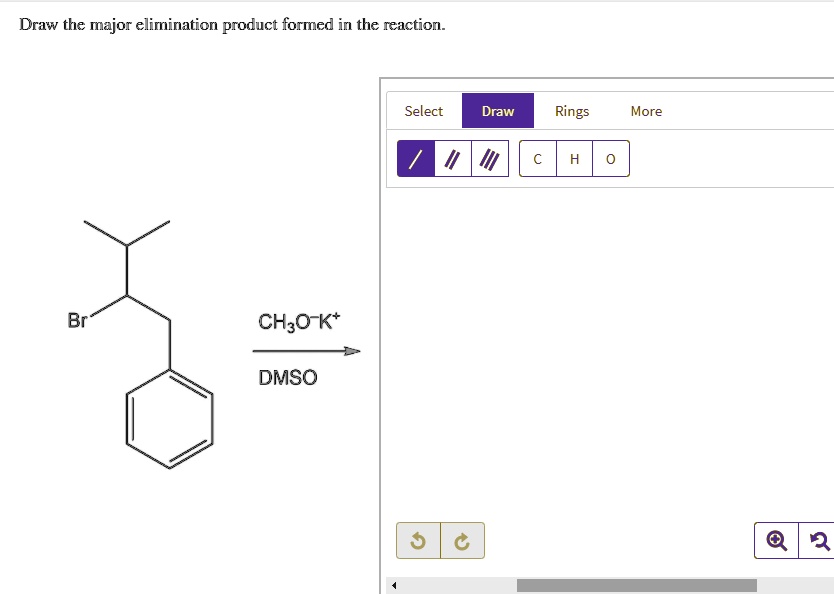
Draw the major elimination product formed in the reaction. Select Draw
[Solved] draw the major product formed. Draw the major elimination
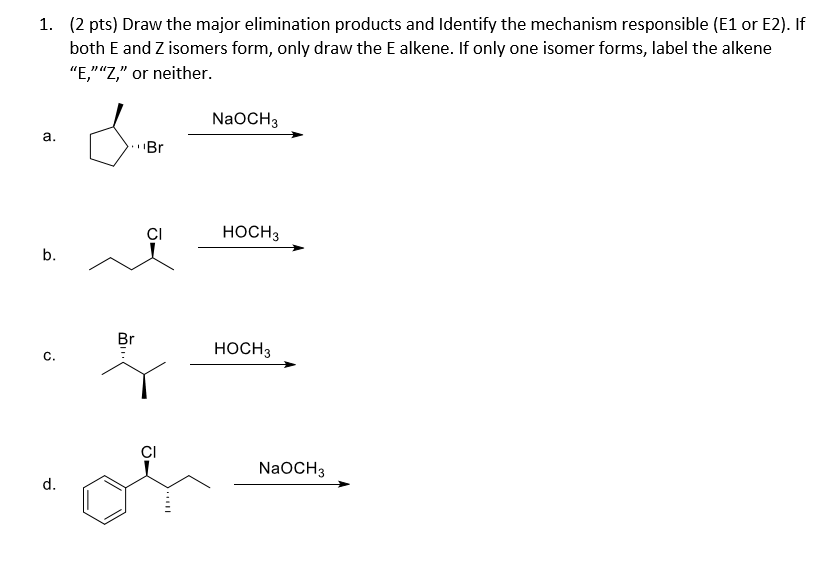
draw the major elimination product formed in the reaction
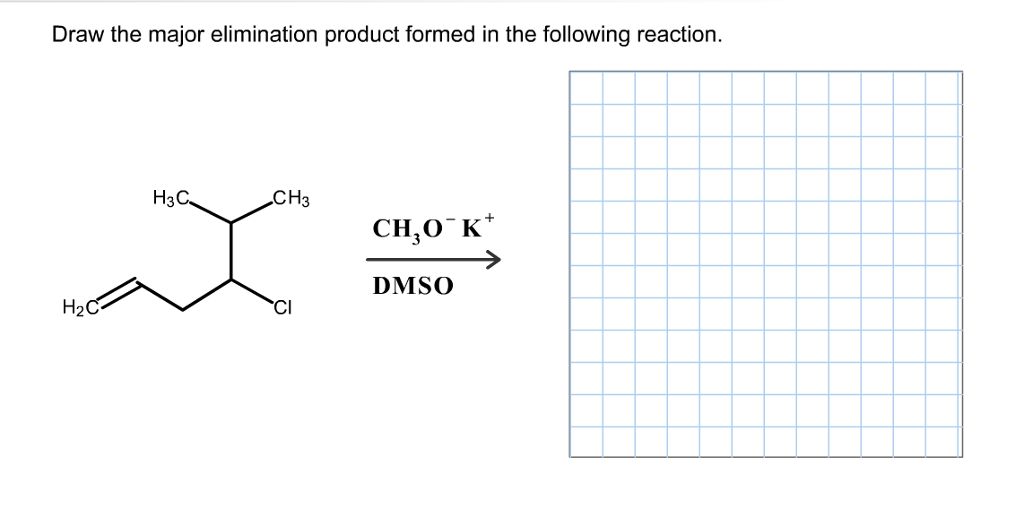
Solved Draw the major elimination product formed in the
Solved Draw the major elimination product formed in the
Solved Draw the major elimination and substitution products
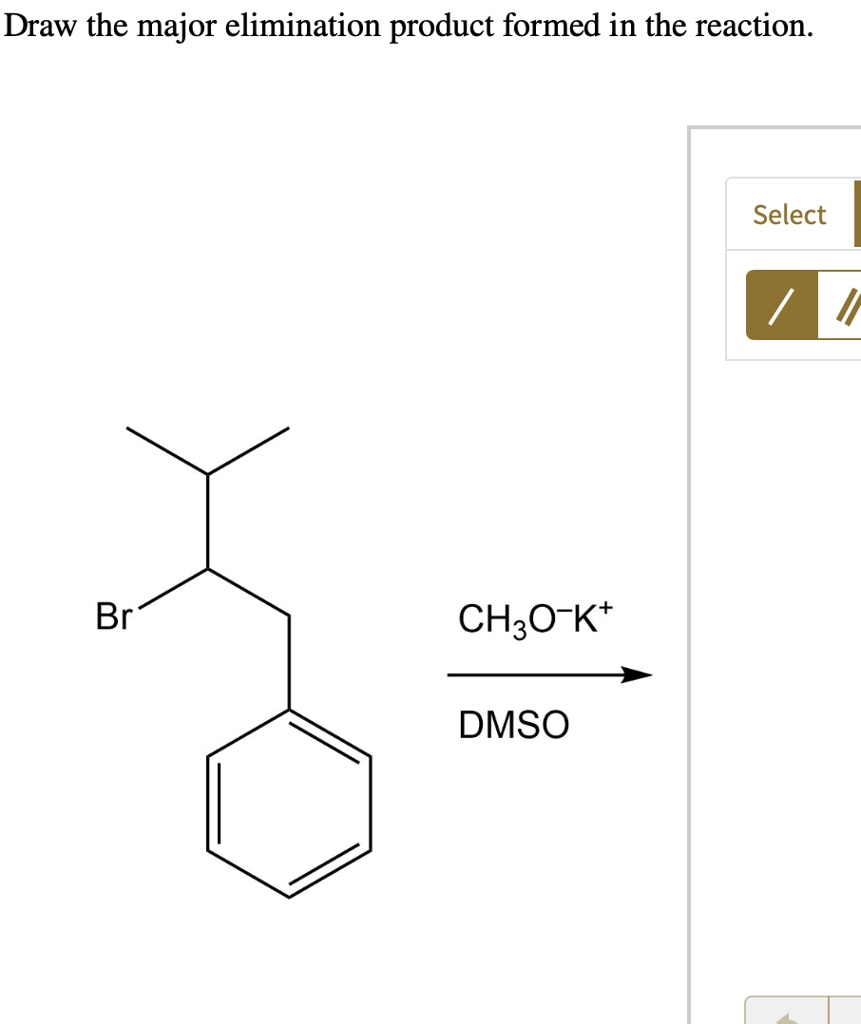
Draw the major elimination product formed in the reaction Select Br
Solved Draw the major elimination and substitution products
Web Draw The Major Elimination Product For The Reaction:
Draw The Major Elimination Product.
Web To Find The Products In A Specific Case, Locate The Hydrogen Atoms On Each Carbon Next To The Leaving Group, And Then Generate The Potential Alkene Products By Removing Hx In.
We Will Learn About The Reaction Mechanisms, And How.
Related Post:

